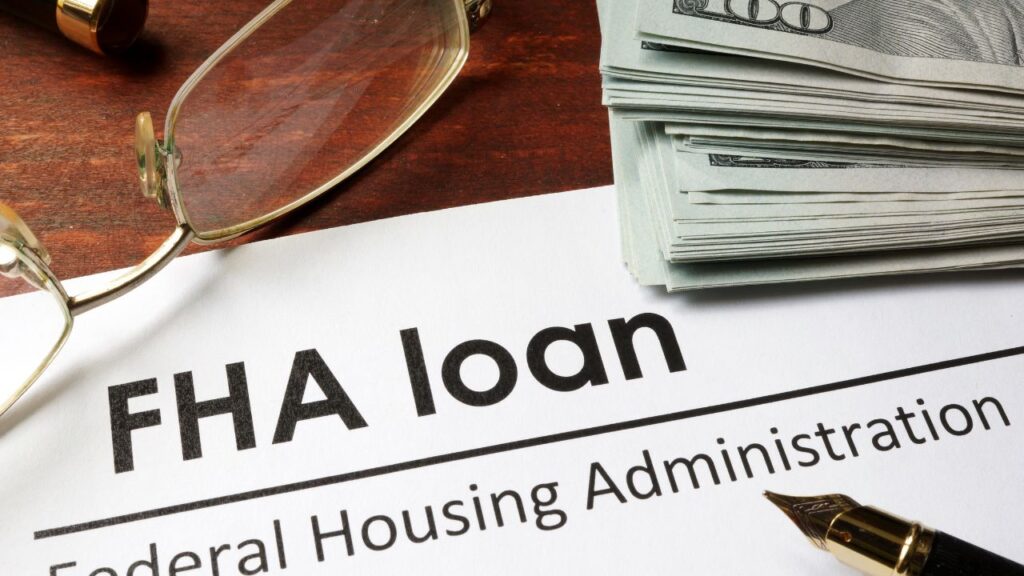When considering home financing options, it’s essential to weigh the FHA Loan Pros And Cons to determine if this government-backed choice aligns with your financial goals.
FHA loans are designed to make homeownership accessible, especially for first-time buyers or those with less-than-perfect credit. One of the significant advantages is the lower down payment requirement, typically as low as 3.5%, making it easier for many to enter the housing market.
🏡 Ready to become a homeowner?
↪ Apply Now to explore low down payment options and secure up to $80,000 in Housing Downpayment Assistance Grants! 💼💰
However, potential drawbacks include mandatory mortgage insurance premiums and property requirements that may not suit everyone’s needs. By understanding the FHA Loan Pros And Cons, you can make an informed decision that best fits your unique situation.
Table of Contents
Introduction To FHA Loans
FHA loans help many people buy homes. These loans are insured by the Federal Housing Administration (FHA). They are popular with first-time homebuyers. FHA loans have benefits and drawbacks. Is an FHA loan the right choice? Let’s explore.

What Is An FHA Loan?
FHA loans are mortgages insured by the FHA. These loans require a lower down payment. They also have flexible credit requirements. This makes FHA loans accessible to many borrowers. People with less-than-perfect credit often choose FHA loans.
| Feature | Description |
|---|---|
| Minimum Down Payment | 3.5% |
| Credit Score | 580 or higher |
| Loan Limits | Varies by region |
| Mortgage Insurance | Required |
History And Purpose
FHA loans were created in 1934. The goal was to help people buy homes during the Great Depression. The FHA insured mortgages, reducing risk for lenders. This made it easier for people to get loans.
- 1934: FHA loans started
- Great Depression: Helped people buy homes
- Reduced risk for lenders
- Made loans accessible
Today, FHA loans still help many homebuyers. They offer a path to homeownership for those with lower credit scores. The FHA continues to support borrowers and lenders.
Advantages of FHA Loans
FHA loans offer several advantages that make them attractive to many homebuyers. These benefits can make homeownership more accessible, especially for first-time buyers or those with limited financial resources.
Lower Down Payments
One major benefit of FHA loans is the lower down payment requirement. Traditional loans may need a 20% down payment. FHA loans often need only 3.5%. This makes buying a home more feasible for many.
Flexible Credit Requirements
FHA loans have more flexible credit requirements than other loans. You can qualify with a credit score as low as 580. Even if your credit score is between 500-579, you may still qualify with a 10% down payment. This flexibility is beneficial for those with past credit issues.
Easier Refinancing
Easier refinancing options are another great advantage. With FHA Streamline Refinance, you can refinance with less paperwork. Often, no new appraisal is needed. This makes the process quicker and less stressful.
Disadvantages Of FHA Loans
While FHA loans offer many benefits, they also have some drawbacks. Understanding these disadvantages can help you make a better decision.
Mortgage Insurance Premiums
FHA loans require Mortgage Insurance Premiums (MIP). This adds to your monthly payment.
There are two types of MIP:
- Upfront MIP: Paid at the time of closing
- Annual MIP: Paid monthly
The Upfront MIP is 1.75% of the loan amount. The Annual MIP varies based on loan terms and amount.
Property Requirements
FHA loans have strict property requirements. The home must meet certain standards.
The property must be in good condition. Safety and security are important.
- The roof must be in good shape
- Electrical systems must be safe
- The water heater must work properly
These requirements can limit your choices. You might need to spend more on repairs.
Loan Limits
FHA loans have loan limits. The amount you can borrow is capped.
These limits vary by area. They are based on local home prices.
| Area | Loan Limit |
|---|---|
| Low-Cost Area | $356,362 |
| High-Cost Area | $822,375 |
If the home price exceeds the limit, you cannot use an FHA loan.
Comparing FHA Loans With Conventional Loans
Choosing between an FHA loan and a conventional loan can be challenging. Both have unique benefits and drawbacks. Understanding the differences helps you make the right decision for your financial future.
Down Payment Differences
One key difference between FHA loans and conventional loans is the down payment.
- FHA Loans: Require a minimum down payment of 3.5%.
- Conventional Loans: Usually require a down payment of at least 5%.
FHA loans are a good choice for buyers with less savings.
Credit Score Requirements
Credit score requirements also vary between FHA loans and conventional loans.
| Loan Type | Minimum Credit Score |
|---|---|
| FHA Loans | 580 with a 3.5% down payment |
| Conventional Loans | 620 or higher |
FHA loans are easier to get with a lower credit score.
Interest Rates
Interest rates can affect your monthly payments and overall loan cost.
- FHA Loans: Often have lower interest rates.
- Conventional Loans: May offer lower rates for borrowers with excellent credit.
Both loan types may have different interest rates based on your credit and financial history.
Eligibility Criteria
Understanding the eligibility criteria for FHA loans is crucial. The criteria determine if you qualify for this type of mortgage. Here, we break down the key aspects: Credit Score Requirements, Income and Employment, and Debt-to-Income Ratio.
Credit Score Requirements
Your credit score plays a major role in FHA loan eligibility. A score of 580 or higher is ideal. With this score, you can make a low down payment of 3.5%. If your score is between 500 and 579, a 10% down payment is needed. Scores below 500 generally do not qualify for FHA loans.
Income And Employment
A stable employment history is essential. Lenders prefer a steady job for at least two years. Your income should be sufficient to cover the monthly mortgage payments. Gaps in employment can impact your application. Self-employed individuals need to provide two years of tax returns.
Debt-to-income Ratio
Your debt-to-income ratio (DTI) helps lenders assess your financial health. The front-end DTI, which includes housing costs, should be below 31%. The back-end DTI, which includes all debts, should be below 43%. A lower DTI improves your chances of approval.
Application Process
The application process for FHA loans can seem daunting. But, with a clear understanding, it becomes straightforward. This section will guide you through each step. Let’s explore finding a lender, the required documentation, and the approval timeline.
Finding A Lender
First, you need to find a lender. Not all lenders offer FHA loans. Use online tools to compare lenders. Check their reviews and ratings. Look for lenders with good customer feedback. This helps ensure a smooth process.
Required Documentation
Gathering required documentation is a key step. Here’s what you’ll need:
- Proof of Income: Pay stubs, tax returns, and W-2 forms.
- Credit Report: A detailed credit history.
- Employment Verification: Employer’s contact information.
- Bank Statements: Recent statements from all accounts.
- Identification: Government-issued ID and Social Security number.
Organize these documents in advance. This speeds up the application process.
Approval Timeline
Approval timelines vary. Generally, it takes 30 to 60 days. Here’s a rough breakdown:
| Step | Timeline |
|---|---|
| Initial Application | 1 to 2 days |
| Document Review | 1 to 2 weeks |
| Property Appraisal | 1 to 2 weeks |
| Final Approval | 1 to 2 weeks |
Staying in touch with your lender helps. They can update you on the progress.
Real-life Scenarios
Understanding the pros and cons of FHA loans can be tricky. Knowing how they apply to real-life scenarios can help you make better decisions. Let’s dive into some common situations where FHA loans may be the right choice.
First-time Homebuyers
First-time homebuyers often face unique challenges. They may not have a large down payment. An FHA loan allows them to put down as little as 3.5%. This makes buying a home more accessible.
Another advantage for first-time buyers is the lower credit score requirement. FHA loans are more lenient with credit scores. You can qualify with a score as low as 580. This opens doors for many who otherwise wouldn’t qualify.

Refinancing Options
FHA loans also offer refinancing options. If you already have a mortgage, you can refinance to an FHA loan. This can help lower your interest rates.
One popular option is the FHA Streamline Refinance. It has less paperwork and quicker approval. This is ideal for those who want to refinance without much hassle.
Investment Properties
FHA loans are typically for primary residences. But, you can still use them for investment properties in certain conditions. If you live in one unit of a multi-unit property, you can rent out the other units. This way, you can generate rental income while living on your property.
Keep in mind that FHA loans have strict rules on property use. Make sure you understand these rules before opting for an FHA loan for investment.
Summary of FHA Loan Pros and Cons:
| Pros | Cons |
|---|---|
| Low down payment | Mortgage insurance required |
| Lenient credit score requirements | Property Restrictions |
| Flexible refinancing options | Loan limits |
Making The Right Choice
Choosing an FHA loan can be tricky. Weighing the pros and cons is vital. This section will help you make an informed decision.
Assessing Your Financial Situation
First, examine your current financial health. Look at your credit score, income, and debt. FHA loans often benefit those with lower credit scores. They also require a smaller down payment. Compare your savings with the required down payment. Check your monthly budget for mortgage payments.
Long-term Considerations
Think about your long-term plans. Are you planning to stay in the home for a long time? FHA loans come with mortgage insurance premiums. These can add up over time. Consider how long you’ll need to pay these premiums. Also, think about future financial goals. Will this loan impact your ability to save or invest?
Consulting A Financial Advisor
It’s wise to consult a financial advisor. They can offer personalized advice. They will look at your overall financial picture. They can help you understand the terms of the FHA loan. They might also suggest alternative loan options. This can help you make a well-rounded decision.
| Factor | FHA Loan | Conventional Loan |
|---|---|---|
| Credit Score | Lower scores accepted | Higher scores needed |
| Down Payment | 3.5% minimum | 5% or more |
| Mortgage Insurance | Required | May be avoided with 20% down |
| Loan Limits | Set by FHA | Varies by lender |
Frequently Asked Questions
What Are FHA Loans?
FHA loans are mortgages insured by the Federal Housing Administration. They are designed for low-to-moderate-income borrowers. FHA loans require lower minimum down payments and credit scores.
Who Qualifies For FHA Loans?
Borrowers with a credit score of at least 580 can qualify. They need a down payment of 3. 5%. Those with lower scores need a 10% down payment.
Are FHA Loans Good For First-time Buyers?
Yes, FHA loans are ideal for first-time buyers. They offer lower down payments and flexible credit requirements. This makes homeownership more accessible.
What Are The Pros Of FHA Loans?
FHA loans have lower down payments and flexible credit criteria. They are easier to qualify for. They also offer competitive interest rates.
Conclusion
Choosing an FHA loan depends on your financial situation and plans. Weigh the pros and cons carefully. Consult with a financial advisor to make an informed decision. FHA loans offer benefits but also come with certain drawbacks. Understanding these factors will help you decide if it’s the right choice for you.
